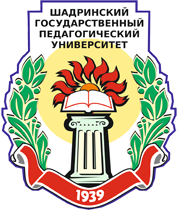Влияние длительности ночного сна на физическую работоспособность студентов-спортсменов
Influence of night's sleep duration on physical working capacity of student-athletes
Аннотация
Цель исследования – дать оценку физической работоспособности (ФР) у юношей-спортсменов профильных вузов в зависимости от продолжительности ночного сна. Методика и организация исследования. Оценка уровня ФР проведена по степ тесту PWC 170 В.Л. Карпмана у 56 юношей 18,59±0,83 лет, являющихся студентами трех профильных вузов, имеющих спортивную квалификацию первого (1 р) спортивного разряда (25 – 44,7%), кандидата (КМС) в мастера спорта (18 – 32,1%) и мастера спорта (МС) РФ (13 – 23,2). Из анамнеза установлено, что продолжительность ночного сна у 12 юношей составила 9,03±0,27 часов, у 14 – 8,49±0,43 часов, у 16 – 7,58±0,31 часов, у 8 – 6,42±0,49 часов и у 6 студентов – 5,46±0,52 часов. Результаты исследования и обсуждение. Достоверно показано, что наиболее высокая ФР выявляется у юношей, чья продолжительность ночного сна составляет 9 и 8 часов, низкая – менее 6 часов. Выводы. Продолжительность ночного сна благоприятно влияет на ФР юношей, занимающихся спортом. Чем по времени продолжительнее ночной сон, тем выше уровень ФР. У студентов, занимающихся спортом, продолжительность ночного сна не должны быть менее 5 часов, ибо это неблагоприятно отражается на их функциональном состоянии. Следует учитывать, что чем выше квалификация спортсмена, тем его организм устойчивее к недостатку сна, что не отражается на ФР.
The aim of the study was to assess the physical working capacity of young athletes of specialized universities depending on the duration of a night's sleep. Methodology and organization of the study. The assessment of the level of physical working capacity was carried out according to the physical working capacity 170 step test by V.L. Karpman in 56 young men of 18.59±0.83 years old, who are students of three specialized universities with sports qualifications of the first (1 p) sports category (25 - 44.7%), candidate (CMS) for master of sports (18 - 32.1%) and master of sports (MS) of the Russian Federation (13 - 23.2). From the anamnesis, it was found that the duration of night sleep in 12 men was 9.03±0.27 hours, in 14 – 8.49±0.43 hours, in 16 – 7.58±0.31 hours, in 8 – 6.42±0.49 hours and in 6 students – 5.46±0.52 hours. Results of the study and discussion. It has been reliably shown that the highest physical working capacity is detected in young men whose nightly sleep duration is 9 and 8 hours, low - less than 6 hours. Findings. The duration of a night's sleep has a positive effect on the physical working capacity of young men involved in sports. The longer the night's sleep, the higher the level of physical working capacity. Students involved in sports should not have less than 5 hours of night sleep because this adversely affects their functional state. It should be considered that the higher the qualification of an athlete, the more resistant his body is to lack of sleep, which does not affect the physical working capacity.








